Second IMMER project workshop took place in Strasbourg
The second IMMER project workshop was held in Strasbourg on November 21, 2024, bringing together representatives from the public and private sectors of the Strasbourg-Kehl region.
R-SQUAD Team
11/21/20243 min read
The workshop objective was to further develop the findings of the initial IMMER project session (held on July 4th, 2024) and refine the previous resulting insights to explore potential future scenarios. Divided into three groups, participants addressed specific disaster scenarios for 2050 that had been developed during the first workshop : "Tsunami 2050", "Blackout 2050" and "Collapse 2050". The goal was to immerse the participants into these three dystopian scenarios, examining key factors, discussing concrete resilience measures, and exploring identified threats and opportunities.
The first phase of the workshop was devoted to immersion in the narratives. After this, each group began with the analysis of a “TOSA” (Threats, Opportunities, Stakes, Actions) framework adapted by the IMMER team. Participants were encouraged to think creatively and immerse themselves deeply in the scenarios. The analyzed societal sectors included energy (electricity, gas, oil), mobility, water, information systems, social cohesion, and territorial self-organization. The findings are structured according to the four dimensions of the TOSA framework—Threats, Opportunities, Stakes, and Actions—and are summarized for each scenario using bullet points that capture the most significant insights and proposals from the participants.
In the last phase, a role-playing exercise was conducted where three participants slipped into the roles of fictional personae: the Minister-President of Baden-Württemberg, the head of the disaster management unit, and a young, successful entrepreneur. Three participants played these roles, engaging the groups by raising scenario-specific issues from the perspective of their persona. The exercise aimed at identifying measures that each persona could implement in their respective role. At the end of this phase, each persona presented the proposed measures to the plenary session.
Following the workshop, a comprehensive synthesis report was meticulously crafted by the project team to capture key insights and outcomes. This report, summarizing the discussions, conclusions, and actionable items identified during the session, was then distributed to all represented organizations. Dissemination of this synthesis report ensures that all participating entities are fully informed and equipped to translate the workshop's findings into concrete actions and strategic initiatives. The report serves as a valuable resource for ongoing efforts and collaborative projects stemming from the workshop's objectives.
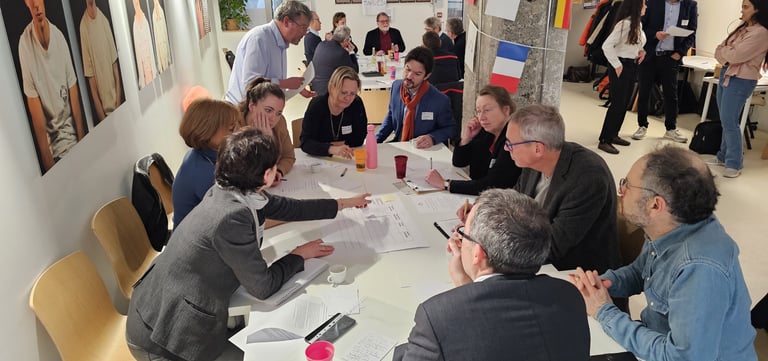

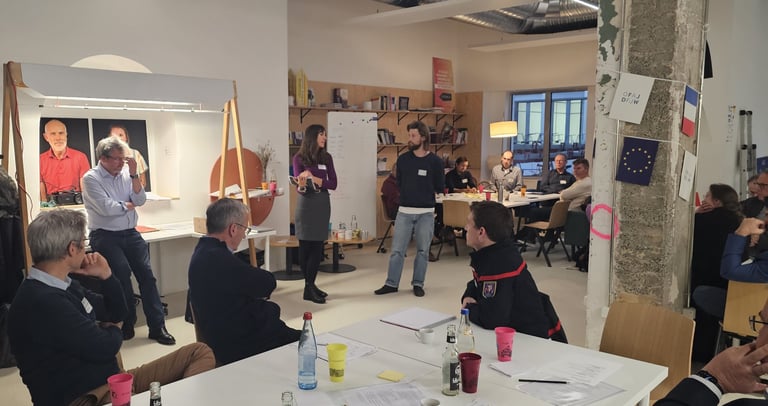

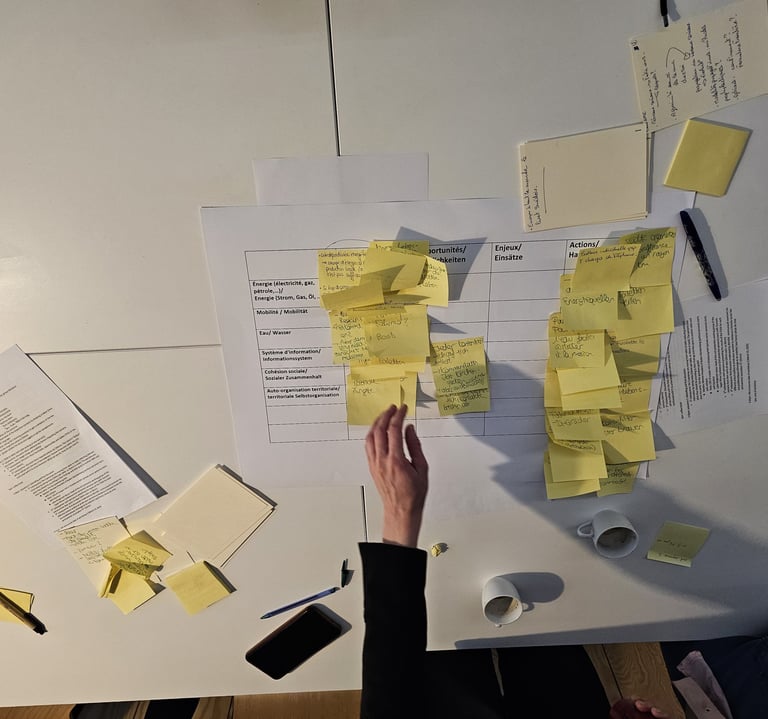

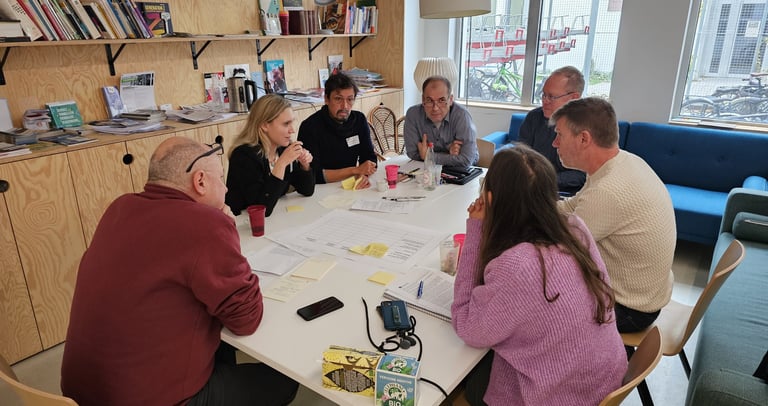

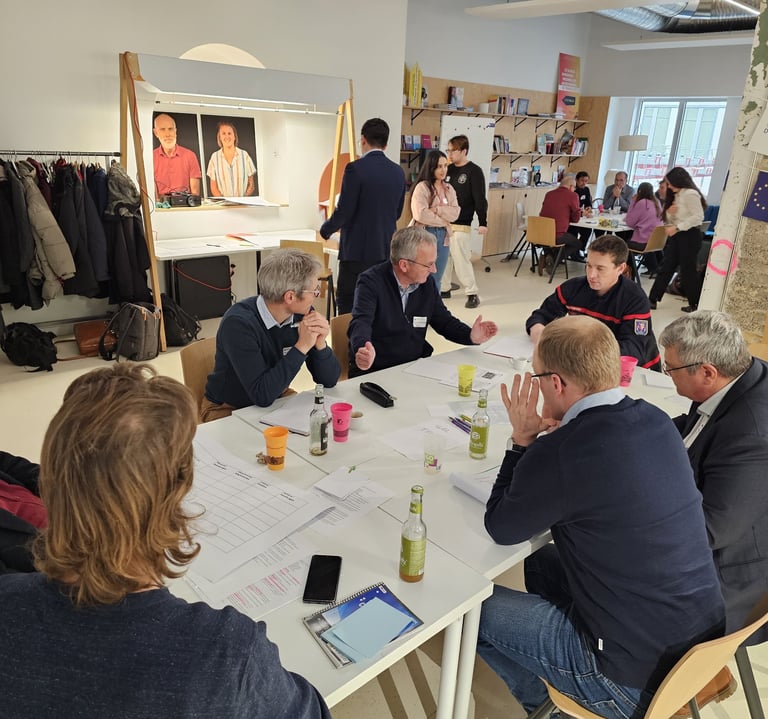

Fictional personae presenting their proposed measures at the end of the session.
Group 3 working on the TOSA of the collapse 2050 scenario.
Workshop Highlights
The results reflect the collaborative effort of the workshop participants, who were tasked with thinking creatively and critically about the cascading effects of disasters. The insights generated through this process could provide a basis for developing strategies about risk mitigation, harnessing opportunities, and building resilience in critical cross-border societal systems. The workshop also performed well on the operational level in terms of communication. Major steps have been achieved in English, but a significant proportion of the discussions was in both French and German languages.